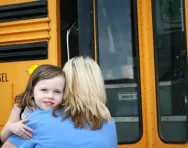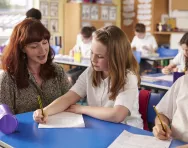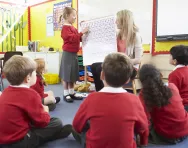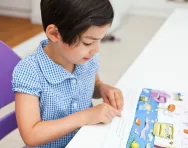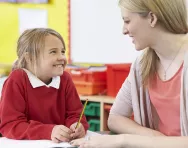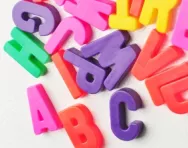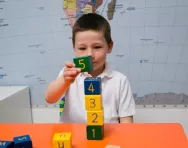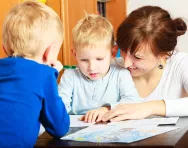TheSchoolRun.com closure date
As we informed you a few months ago, TheSchoolRun has had to make the difficult decision to close due to financial pressures and the company has now ceased trading. We had hoped to keep our content available through a partnership with another educational provider, but this provider has since withdrawn from the agreement.
As a result, we now have to permanently close TheSchoolRun.com. However, to give subscribers time to download any content they’d like to keep, we will keep the website open until 31st July 2025. After this date, the site will be taken down and there will be no further access to any resources. We strongly encourage you to download and save any resources you think you may want to use in the future.
In particular, we suggest downloading:
- Learning packs
- All the worksheets from the 11+ programme, if you are following this with your child
- Complete Learning Journey programmes (the packs below include all 40 worksheets for each programme)
You should already have received 16 primary school eBooks (worth £108.84) to download and keep. If you haven’t received these, please contact us at [email protected] before 31st July 2025, and we will send them to you.
We are very sorry that there is no way to continue offering access to resources and sincerely apologise for the inconvenience caused.
13 things that’ll happen in your child’s Reception year
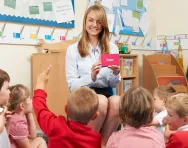
Starting school is a big new adventure for both you and your child. School life is often very different from what we were used to as kids, and it can be hard to keep up with what goes on in and out of the classroom.
We’ve rounded up 13 things that you can expect to happen in your child’s Reception year.
1. The Reception starters’ meeting
Wondering what your child’s teacher is like, what they’ll be learning at school and where you should drop them off in the morning? The Reception starters’ meeting is an invaluable chance to find out the basics of what will happen when your child starts school.
It might take place in the summer term before your child begins Reception, or soon into the autumn term. Some schools offer one-to-one meetings, while others invite all the parents in for a group meeting.
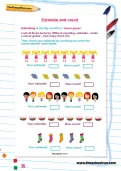
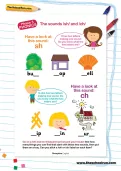
Start the Reception Learning Programme!
- Weekly maths & English worksheets direct to your inbox
- Follows the National Curriculum
- Keeps your child's learning on track
Your burning questions about school life will be answered, and you’ll have the chance to ask about anything that’s not covered.
2. Introduction to phonics
Phonics is the system by which children learn to read in primary schools. They learn letters by the sound they make, rather than their names: for example, ‘a’ is called ‘ah,’ not ‘ay.’ The sounds are introduced in a fixed order, starting with the ones that are used most commonly (s, a, t, i, n, p).
There are 44 sounds – known as phonemes – in total, some of which are made up of more than one letter, like ‘sh.’
Once they’ve mastered these sounds, children learn how they are combined – or blended – to make words.
Many schools hold a meeting early in the year specifically to give parents the lowdown on phonics. You can also read our beginner’s guide to phonics teaching.
3. Maths Mastery
Many schools use the Maths Mastery approach in Reception, which is based on methods used in high-achieving South Asian schools and was rolled out in 2016.
It involves specific learning strategies, such as using concrete objects (LEGO bricks, counters, Numicon or similar), and an emphasis on learning key maths facts by heart, such as number bonds and, eventually, times tables.
You can expect an explanation of maths teaching methods at the Reception starters’ meeting, or read our guides to Maths Mastery and two of its key elements: the bar model method and the concrete-pictorial-abstract (CPA) approach.
4. First reading books
You may be expecting your child to come home from their first day of school proudly clutching a reading book, but actually, it’s likely to be several weeks – or even months – before they bring one home.
Schools generally like children to have made a good start with phonics, so they have the foundations for learning to read, before they start sending home reading books (although most will send home books for you to read to your child right from day one).
Once your child does get started with reading books, it’s likely they’ll follow one of the popular primary school reading schemes, such as Oxford Reading Tree or Collins Big Cat. These are devised to help children learn to read in a systematic way that ties in with phonics teaching.
5. School Entry Health Check
In the first few weeks of term, your child will bring home a letter asking for your consent for their School Entry Health Check.
This is a nationwide check for all Reception children, and involves them being weighed and having their vision and hearing tested to identify health needs that may interfere with their learning.
It usually takes place near the start of the autumn term, and you can opt out of the whole thing, or any elements of it, if you prefer.
6. Free school dinners
Don’t worry about buying your child a lunchbox for their first day at school: since 2014, all children in Reception (plus Years 1 and 2) have been entitled to a free school meal, regardless of their family's financial circumstances.
You’ll probably be given a menu to bring home so your child can choose what they’d like for lunch each day; there’s usually a choice of a meat/fish based hot meal, a vegetarian option, or a packed lunch type meal.
If your child isn’t keen on the menu, they can bring in a packed lunch instead.
7. First parents’ evening
Your child’s first parents’ evening can be rather daunting, but remember that it’s a two-way process: the teacher will be filling you in on how your child is getting on at school, but will also want to know what they’re like at home and how they can best support them.
Different schools have different procedures around parents’ evenings, but in Reception, it’s likely that you’ll be asked to go without your child, so try to arrange childcare so you can focus fully.
Appointments are usually only 10 minutes long and fly by very quickly, so it’s a good idea to spend some time making a list of questions beforehand. If there’s more to discuss than you have time for, you’ll be able to arrange a one-to-one meeting at a later date.
8. Foundation Stage assessment
If you’ve heard the news stories about Reception children being assessed in the first weeks of the school year, you might be worrying about the tests and how they’ll affect your new school starter. But Reception Baseline Assessments are a no-pressure way for your teacher to understand the level of the whole class, and your child is unlikely to even know they're being tested.
At an individual level, your child will be assessed against the Foundation Stage Profile. This breaks their learning down into seven distinct areas, with a range of goals in each that pupils should be meeting by the end of Reception.
Don’t panic: your child won’t be sitting formal tests. Rather, their teacher will be observing them throughout the year and ticking off the goals as they reach their targets. You can also let their teacher know about milestones they've reached at home, as these count towards their learning goals.
Then, in the summer term of Reception, their official Foundation Stage Profile will be completed, consolidating everything the teacher has witnessed over the previous terms.
9. First school photo
Don’t forget to make a note of when your child’s first school photo will be taken, and make sure hair is brushed and uniform is clean on the day: you’ll be looking at that portrait for many years to come!
Top tip: school photos are usually taken midway through the autumn term, so the prints are delivered before schools break up for Christmas – the perfect gift for proud grandparents.
10. Flu jab
All children in Reception (and Years 1 to 5) are offered the flu vaccine at school, during the autumn term.
It’s given as a nasal spray – less traumatic than an injection – and is intended to protect children from flu and its complications (such as pneumonia and bronchitis), as well as preventing flu outbreaks to spread like wildfire throughout schools.
You’ll receive a letter asking you to consent to your child having the vaccine: ultimately, it’s your choice.
11. Headlice
OK, so it’s not guaranteed that your child will catch headlice in their first year of school, but given that around one in eight primary school kids have them at any one time, it’s quite likely that you’ll end up combing critters from their hair.
Get into the habit of checking your child’s head frequently. If they do catch headlice, there are many different treatments to try, from the all-natural combing method to medicated lotions – and the good news is that as long as you’re treating the infestation, there’s no need to keep them off school.
12. First school trip
Although there’s no National Curriculum requirement for schools to arrange educational visits, most schools try to arrange a school trip at least once a year for each year group.
Your child’s first school trip is likely to be fairly low-key and local in recognition of the fact that they’re still very young. A full risk assessment will be done for every trip.
Schools usually ask parents to pay for trips, as budgets rarely stretch to financing educational visits, but this is a voluntary contribution.
If you’re struggling to afford a trip, talk to your child’s teacher in confidence, as they may have funds to help families who need financial assistance – but bear in mind that if lots of people refuse to pay, the trip may end up being cancelled.
13. First school report
At the end of your child’s Reception year, you’ll be handed their first ever school report.
This will be informed by their Foundation Stage Profile, where you’ll be told whether they are at the ‘expected’ level for their age, ‘emerging’ (not quite reaching it yet) or ‘exceeding’ (a judgement that is used very sparingly).
The content and format of school reports will vary from school to school, but the purpose is to give you an overview of how your child has performed and developed throughout the year, based on their teacher’s observations and assessments.
In theory, there shouldn’t be any big surprises in your child’s report, as your teacher should have raised any significant issues as they arose. That said, teachers should be willing to discuss any questions that result from the report, so ask for a meeting in person if there are areas where you’d like clarification.
